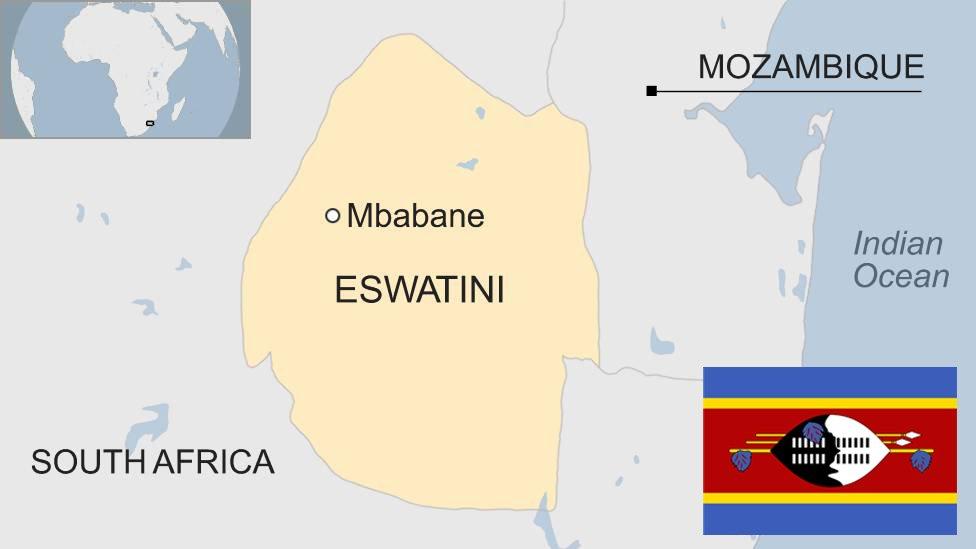Bringing Gay Pride to Africa's last absolute monarchy
- Published
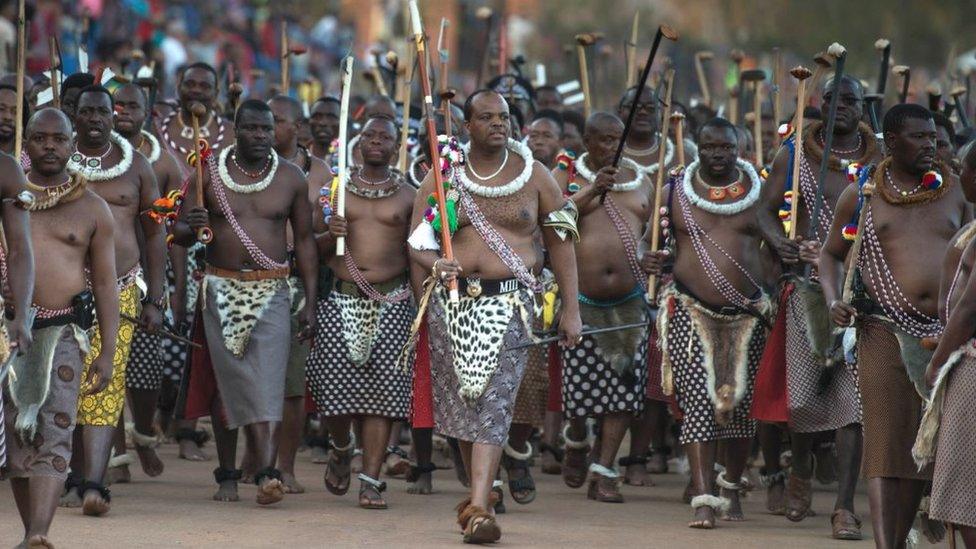
Swaziland, now known as eSwatini, is a traditional country ruled over by King Mswati III (centre)
Africa's last absolute monarchy is holding its first LGBTI Pride event this weekend.
And anyone doubting the determination needed to undertake such an event in Swaziland, now known as eSwatini, just needed to open last week's Sunday Observer.
A full-page letter accused those organising the march of promoting "paedophilia and bestiality", calling on the organisers to "cancel this gay Pride until Emaswati have decided that they will choose this unnatural behaviour".
'Turn hate into love'
But for Melusi Simelane, communications officer for LGBTI rights group Rock of Hope, which is organising the event in the capital, it was a case of: "If not now, when?"
"The right time will never come," he told the BBC. "It is an issue of being courageous enough. So we decided if no-one is going to do it, we would."
So on 30 June, in a country where homosexuality is still illegal, Mr Simelane will join what he hopes will be 2,000 other LGBTI people and supporters in the capital Mbabane, united by the slogan "turn hate into love".
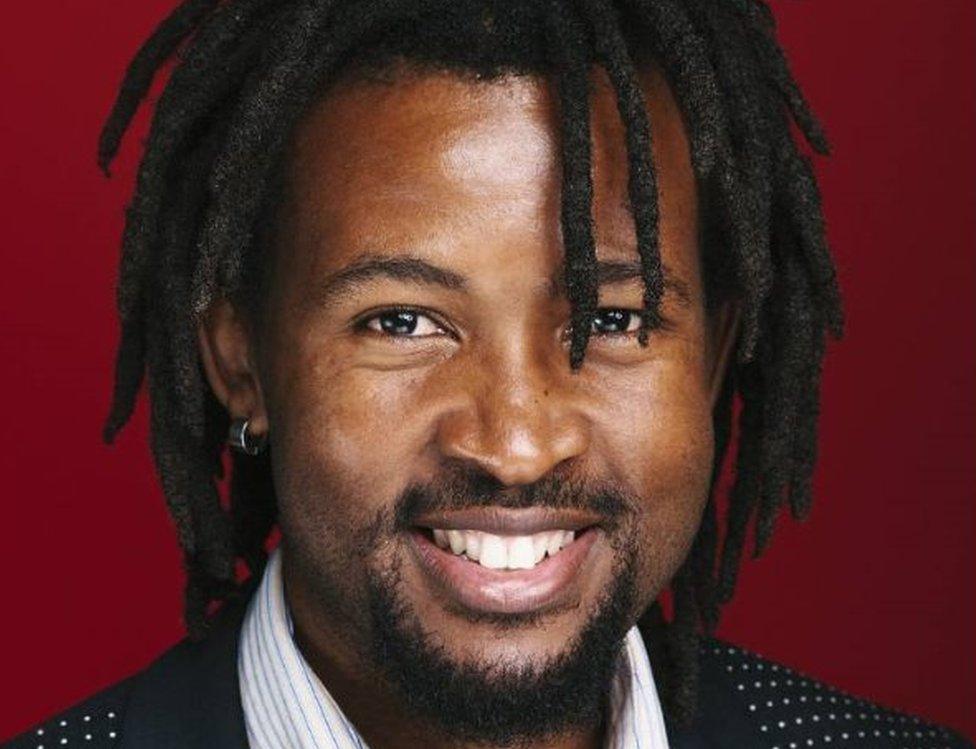
Melusi Simelane has been a driving force behind Swailand's first LGBTI Pride march
"I was so impressed by his determination, really against all the odds, to pull this off," said Matt Beard, chief executive of All Out, a "global movement for love and equality" which helped support the event.
"There have not been many Prides in Africa, and this is a small country - an absolute monarchy where homosexuality is illegal - and this young guy had this vision to pull together this moment.
"This will be the first time this community has been able to come together in public, to have that level of dignity and pride in themselves."
However, that doesn't mean the idea of walking proudly through the streets of this tiny nation - home to just 1.1 million people - isn't slightly nerve wracking, even if the authorities have given permission for it to go ahead.

You might also like:

"It's mixed feelings," one man - a gay preacher - told the BBC. He asked not to be named.
"If they see you, they will disown you and reject you and all this stuff," he explained. "But my other side is that I am happy. We will have a stand for the church to support the LGBTI community."
That support is something which has been lacking from his own experience, and those of the largely LGBTI community he already preaches to.
According to a human rights report by the US embassy in 2017, LGBTI people who live openly face "censure and exclusion". And while prosecutions are rare, high-profile figures often take a very public stance against the LGBTI community.
King Mswati III is widely reported to have called homosexuality "satanic", while the country's chief police communications officer, Khulani Mamba, who doubles up as a preacher, told his congregation last weekend that "this country will not tolerate the LGBTI community", external, according to the Swazi Times.
The rhetoric is something Mr Simelane recognises.
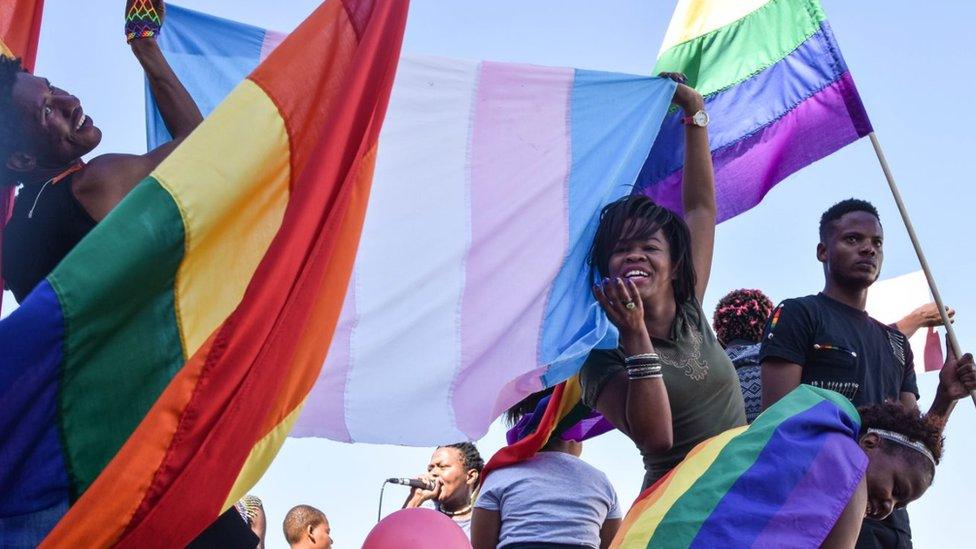
Pride came to another southern African country, Namibia, for the first time two years ago
"There is persecution each and every day," Mr Simelane said. "We are harassed, we are violently abused, we are emotionally abused."
And yet, Mr Simelane, who is a full-time student alongside his role at Rock of Hope, says that in fact, most people are excited to see what Saturday brings.
"We are a small country with a very welcoming culture. Everyone is interesting to see what it is going to look like," he said.
And as they get closer to the march, which will be followed by a family-friendly event complete with bouncy castle at the Prince of Wales stadium, the excitement grows.
Nontobeko Dlamini, the executive director of another Swazi LGBTI group, House Of Our Pride, told the BBC: "It makes me happy to be alive and to see this day.
"We have lost the ones that started this but we are here to see it through."

More about Swaziland/ eSwatini:
- Published20 June 2018
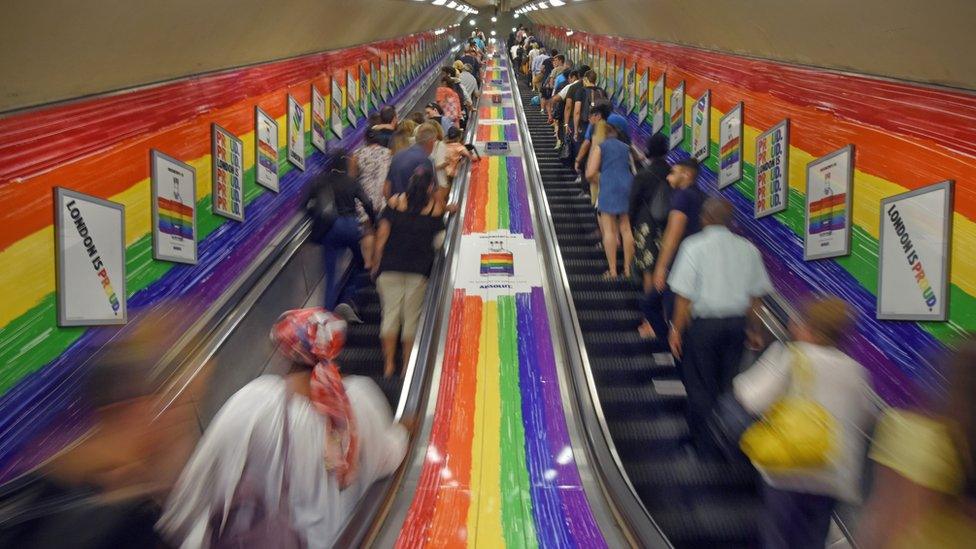
- Published18 June 2018
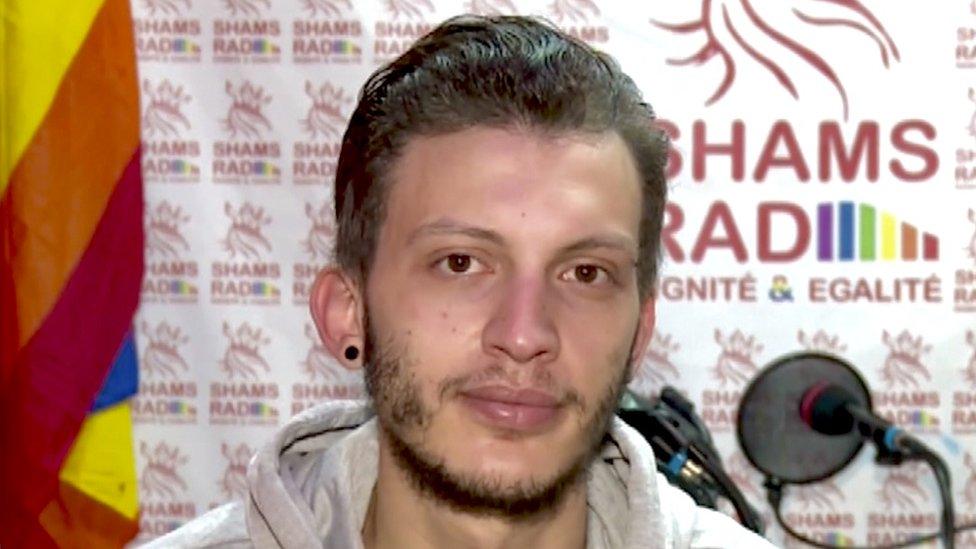
- Published30 July 2017
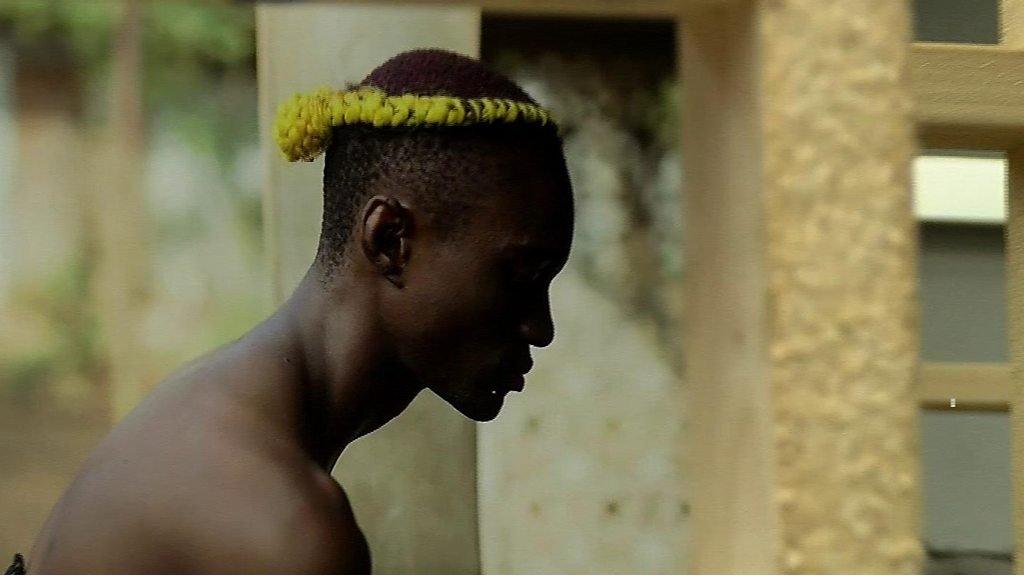
- Published26 April 2018
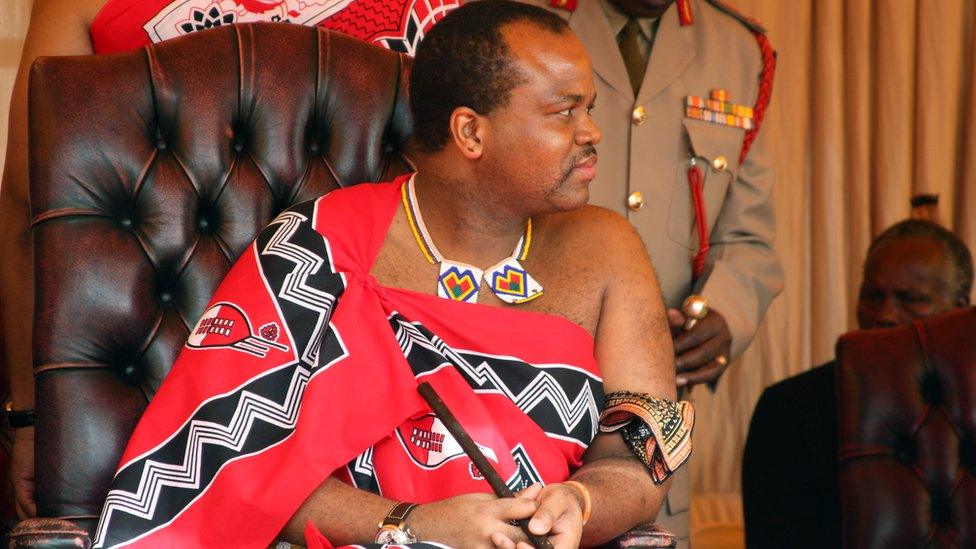
- Published12 April 2023
